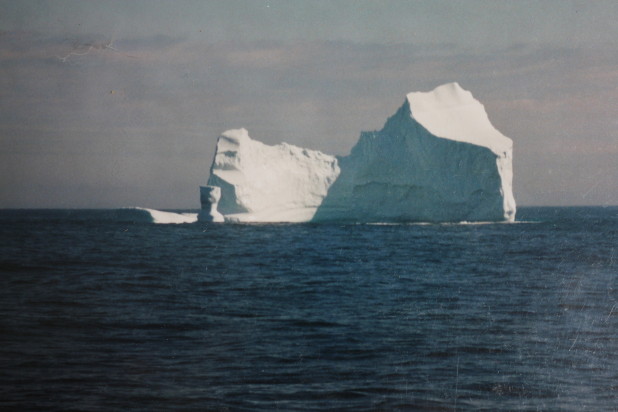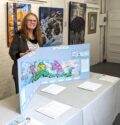General News » News
Climate change a concern for cottage country, says Nielsen
June 14, 2014

By Nate Smelle
On Saturday, June 7 a group of 60 aquatically concerned citizens gathered at the North Kawartha Community Centre in Apsley to share and discuss ideas on how people can become better stewards of the lakes and lakefront properties they enjoy.
First, Gary Nielsen, the climate change program coordinator at the Ministry of the Environment led off the conference with an update on the impacts of climate change will be throughout the region.
Nielsen told the crowd that because cottage country is so dependent on a healthy and pristine natural environment for its economy it will be hit hard by the effects of climate change in the next 20 to 30 years.
“Extreme weather is not a big deal for most of the natural world,” said Nielsen.
“These things are very impactful on human infrastructures though.”
Nielsen explained that weather records are proving that both the intensity of storms and the frequency at which they have been occurring have increased substantially. Whether or not the human species has a future on this planet, he said, depends on how humans prepare and cope with climate change.
“There is very little that is natural around us anymore,” said Nielsen.
“We have had such an influence on everything, and now everything depends on how us humans react. Are we going to continue to emit, or are we going to conserve and start managing our resources sustainably? This business about saving the planet, well the planet could care less. What we are trying to save is the stability of the social and economic systems that have allowed us to build a pretty nice society.”
Neilsen said that because fish are good indicators of the overall health of the environment around them, they are able to monitor the effects of climate change by monitoring the health of fish populations. For example, cold water fish such as lake trout do not survive and reproduce well when water temperatures warm even by as little as a degree. Bass on the other hand, do very well in warmer water.
Likewise, just as warmer water will boost bass populations, warmer weather will also increase populations of opossum, raccoons and biting insects like mosquitoes. Although many of the symptoms of climate change are now unavoidable people can still take action to prevent the situation from worsening.
“Nothing is going to change unless you, me, we make it happen,” he said.
“Politicians don’t lead, they follow. If there is a parade going on they will hurry up to get in front of it. Right now there is a provincial election on and nobody is talking about the environment, nobody is talking about climate change. That is because politicians are convinced that society doesn’t care. If society cared they would be talking about it. It’s all about jobs right now and it drives me nuts.”
People around the world living in poorer communities will be hit the hardest by climate change, he said, once resources become scarce.
“The best thing you can do to withstand climate change is be rich,” Nielsen said.
“The best thing you can do about climate change is to engage in civic action. Vote, ask the politicians the questions you want answers to. There is very little we can do on the inside, but the masses can do a lot.”
Next up at the microphone was Mayor of North Kawartha Township Jim Whelan and the township’s chief inspector and program manager Jim Sangster. The pair gave a presentation on the North Kawartha septic re-inspection program. The main objective of the program is to improve public health and safety by improving the water quality in the area.
“Living in a township that depends on clean and clear water for cottaging, swimming, water sports, fishing and for just pure beauty it’s worth protecting our water even though it comes with a cost,” said Whelan.
“For the township of North Kawartha to not only survive but to thrive; and quite simply for the health and safety of not only our residents but our many visitors we must do everything we can to protect this valuable and irreplaceable asset.”
Beginning this past May the cost of each re-inspection breaks down to $137. The program first arrived in the public’s mailboxes in the form of a survey. Sangster shared in detail how the program works by systematically gathering data from the public over a five year cycle. The study aims to evaluate the state of septic systems and site conditions throughout the township.
“Another objective of the program is to take action on those systems that are categorized as potential health hazards, or classified as seriously sub standard. Ultimately we want to ensure that the property owners have a good working system that will not harm the environment,” said Sangster.

















